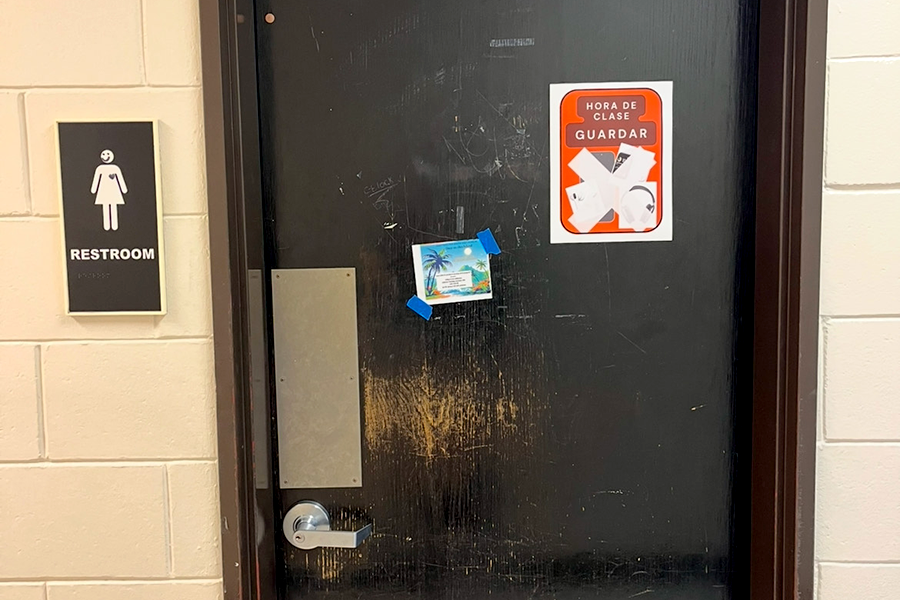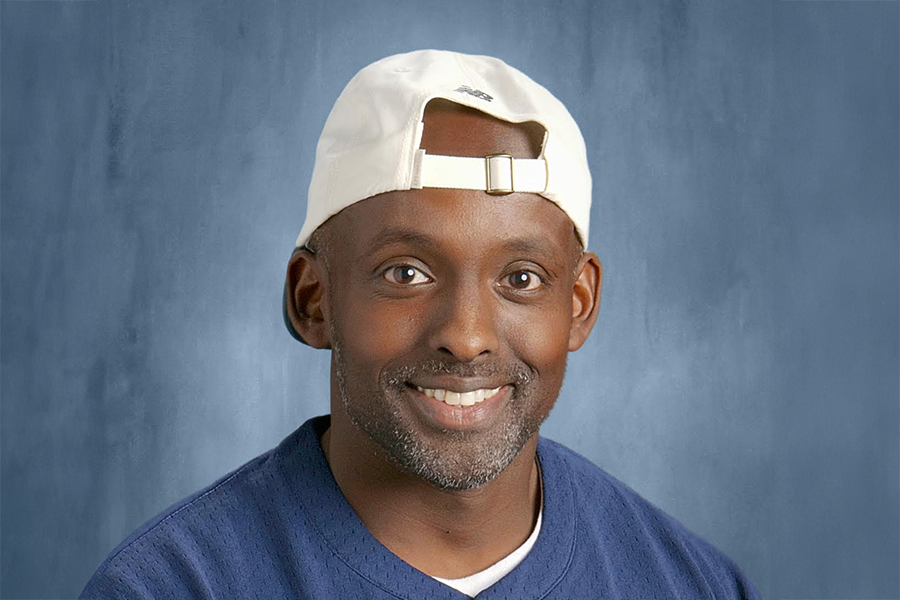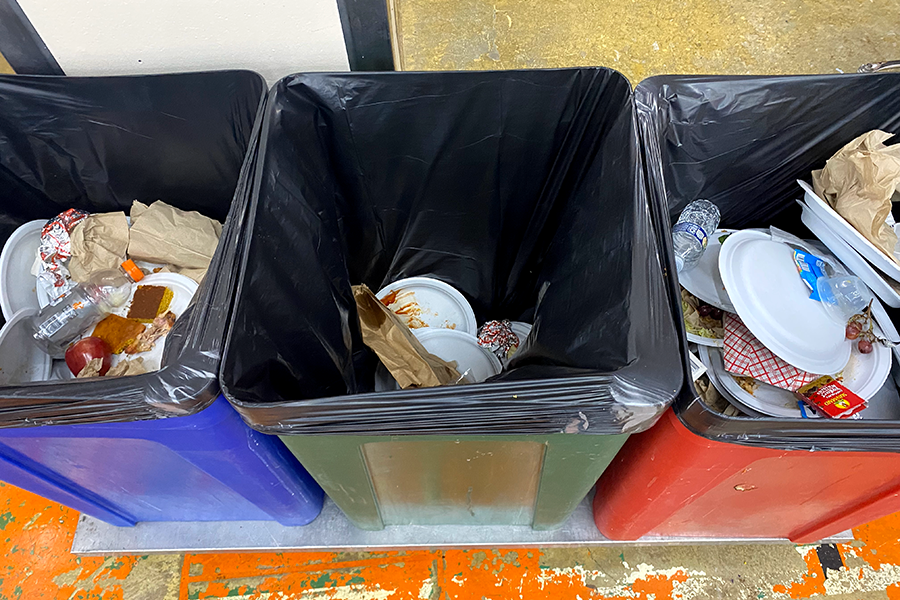Babies are beautiful. Babies are burdens. Unexpected babies can be avoided by regularly taking one, highly controversial pill. The right to access birth control is a topic that has come up again recently in Congress and the Supreme Court. To many students at South, what legislators decide could have a drastic effect on their lifestyles.
“Basically it’s inherent, reproductive health care, is inherent in taking care of adolescents,” stated Lisa Carlson, the primary pediatric practitioner in South’s School Based Clinic.
Healthy and responsible takes many forms at the clinic. The clinic offers resources ranging from sports physicals, to prescribing birth control; but reproductive health services are a major portion of their business. Carlson estimates that these services make up about 45% of traffic in the clinic.
“Anytime you do clinical care you deal with the issues that your population brings to you, and to tell you the truth, [sexual health] is the issue that’s most often brought to me by the kids I see,”said Carlson.
Junior Alisha Searcy is one South student who has benefitted from the clinic.
“I used to be on the pill, but I didn’t really like that, because it was too much taking it on time,” Searcy stated. When she was taking birth control, she got her prescription at South’s clinic.
Searcy’s journey with birth control began when her aunt recommended it for her.
“She just wanted to make sure I was being safe. It made it kind of better to know that I’ll be protected, both ways,” said Searcy. “I think it’s a good idea for females to be on, because it keeps them safe at all times. Even though it doesn’t protect all types of diseases, it’s something we should be on.”
Babies bring with them demands of money, and work, and reduced opportunities. According to the National Campaign to Prevent Teen Pregnancy, only one third of all teen mothers in the US get their high school diploma, and less than 1.5% have a college degree. So many students, Searcy included, find a medium to balance their personal relationships, and future in birth control.
Carlson agrees.
“Access to health care is really important, birth control is one aspect of a healthy person, if that person has decided to engage in intimate sexual relations,” she stated.
Edward Ehlinger, the Commissioner of Health for Minnesota, also stressed the importance of reproductive health for women. In his history working in health care at the University of Minnesota, and in the government currently, he has put his beliefs into action. In the early 70s he helped to start the same School Based Clinics that are in effect today.
“Women’s health is a huge issue in our country, and throughout the world, because if women are healthy, society’s healthy,” said Ehlinger. “Looking at all the things happening with women’s health, reproductive health is really important.”
Despite their name, birth control pills are not only used to prevent pregnancies. Doctors often prescribe the pill to take care of Polycycstic Ovary Syndrome, endometriosis, and premenstrual symptom, all of which occur because of a hormonal imbalance. Birth control regulates hormones to return the body to a more manageable, and often less painful, cycle.
Sophomore Payton Gerick is just one of the women who benefits from access birth control. She was prescribed the pill by her doctor to resolve a medical issue.
“At first I was really hesitant to do that [take birth control],” Gerick stated. “I just had this preconceived notion in my mind, I guess, that birth control is not something that you should have to take if you are not sexually active. And I was like, I’m not, so I shouldn’t have to take that.”
Since taking the pill, Gerick has noticed some changes in her lifestyle.
“I’ve noticed a lot it does tend to regulate my mood,” said Gerick. “Mostly it really hasn’t changed, it’s just take a pill in the morning now.”
In 2007, senior, Kate Bussert found herself in a situation to be prescribed birth control. That July she found out that she had a cyst on her ovary, a painful condition to live with. Developing a cyst at twelve meant that she had a strong likelihood of having more later in life. To prevent it, the doctor prescribed birth control.
“For a while it was my family arguing over should we put [me] on birth control,” Bussert stated. Several factors played into the family’s final decision.
“I was twelve years old, you know, that’s a little young to be taking pills,” said Bussert. “And my family also doesn’t take chemical pills, we just don’t take chemical medications, so they put the kibosh on that.”
Bussert’s aunt is a homeopathist, somebody who chooses to use natural medicine, instead of chemicals. For Bussert, this means that she does not take allergy medication, or even ibuprofen, so birth control would have been a tentative step.
“My aunt believes completely thoroughly that the chemicals only fake your body out, instead of actually solving the problem by making it stronger,” said Bussert. “I just toughed it out.”
Eventually the problem resolved itself, but Bussert emphasized the importance of birth control availability to young people.
“I think birth control in general is the most important thing for young women of our age to be thinking about because high school is the time that people start needing birth control,” Bussert stated. “I would take birth control… I would never hesitate to use it.”
Independent decision making is a huge part of choosing to take birth control. Radio personality Rush Limbaugh recently called a birth control activist, college student Sandra Fluke a “slut” and “prostitute,” showing widespread misconceptions about women who use birth control, and general misinformation about the usage of birth control.
“I was really amused by the fact that Rush Limbaugh said that, essentially, you have to take a pill every time you have sex, which is absolutely the most ridiculous thing I have ever heard,” Bussert laughed. “Because the point of the birth control is that you take one pill every day, and if you don’t have sex that day, that’s fine, and if you have sex a zillion times that day, that’s fine too!”
Ehlinger agreed that this incorrect thought about birth control was common.
“Folks think that adolescents shouldn’t have access to it because they think that it increases the promiscuity of teens. And we know, again, from the studies that have been done, that having access to contraception is not going to increase sexual activity,” stated Ehlinger. “Sexual activity is fairly high among young adults, and not having access to contraception does not decrease it, it just increases the chance of getting pregnant.”
A major issue in current politics centers around birth control accessibility. Republican candidates Rick Santorum and Mitt Romney have fiercely debated the issue of mandated coverage of birth control.
“If anything, if we didn’t have birth control there’d be a lot more pregnant people, just saying,” Searcy said.
Gerick agreed that limited access to birth control would change her life negatively.
“I would have to find alternative means to regulate the issues that I have, that birth control is currently regulating. That would actually be really difficult, because I’m not sure what else would work,” Gerick stated. “I feel like, if you feel like that [birth control] is something that you need, then you should have access to it.”
Bussert claimed birth control as a human right.
“I think it’s important that people think about health care in all of its aspects. If you’re in a situation where you can’t have a baby, for whatever reason, then you shouldn’t have to,” said Bussert. “Along with that is cutting funding to Planned Parenthood, which is the only place where you can get free medical care, reproductive health care. That’s important for people especially in this area, like lower income level people. They need birth control too. It’s a universal right.”
A widely debated law in Minnesota is minor’s consent. In 1971 the Minnesota legislature gave teens private access to health care regarding pregnancy, alcohol or drug abuse, venereal disease, and abortion. This means that teens can access services in these areas without having to consult their parents and guardians.
“Certainly some people question the minor’s consent law, they think that parents should have complete control over what happens with their kids, and that their kids should not have service from any provider without parental consent,” Ehlinger stated.
Minor’s consent provides a lot of controversy around access to birth control. In the course of his work, Ehlinger has seen that many members of these anti-contraception groups have misconstrued the roles of health care providers.
“The . . . misconception is, from some, that health care providers are really encouraging kids to have sex, and that is not true,” Ehlinger explained. “Particularly in the school based clinics, the conversation always is talk with your parents; they can really give you lots of good advice.”
According to Ehlinger, minor’s consent comes into play when, for whatever reason, the student will not talk to their parents, and will not practice abstinence. In these cases birth control, and other resources are made available to teens separate of their guardians’ knowledge.
Whatever the misconceptions surrounding birth control, Bussert appreciates the bravery of women who go against outside pressures to take care of themselves.
“I think that women who use birth control . . . they’re responsible, because they’re actually taking a step to keep themselves healthy,” Bussert said. “And I think that’s admirable in a society that says you’re a slut if you take birth control, to continue to make those choices yourself is really cool.”







